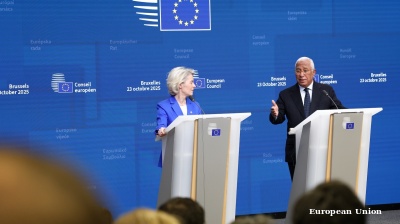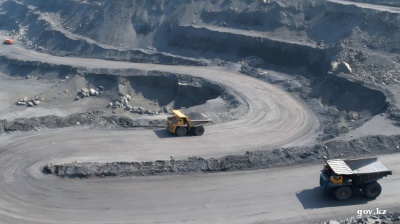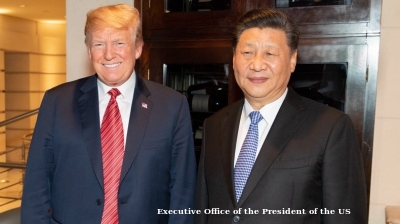The National Bank of Slovakia (NBS) has lowered the country’s economic outlook to 2.5% growth this year and next, after the left-right cabinet of populist Prime Minister Robert Fico approved a bigger than expected €2.7bn consolidation package. The NBS estimates the package will cut growth next year by 0.6pp.
The NBS also projects a temporary spike of inflation to 5% next year up from 3% this year, though it will fall to around half that figure in 2026.
NBS Governor Peter Kazimir described the consolidation of public finances as necessary and said that together with external challenges, including the cooling of key economies in Europe, it “will temporarily dampen the output of the economy and push inflation to higher levels”.
The Slovak economy is heading towards “solid growth despite the strong headwind”, Kazimir summed up the NBS prognosis, while NBS executive director Michal Horvath stressed that without the consolidation, “the economy would face risks of a lower [credit] rating” and “a risk of possible unexpected moves on the income of state bonds” .
The consolidation package “lowers these risks significantly”, Horvath continued, adding that “consolidation will of course involve costs”. The NBS expects the deficit of public finances to be at 5.7% this year and to drop to 4.5% in the next two years as a result of the consolidation.
Horvath pointed to the return of gas prices to a “real” level next year and the impact of the tax hikes introduced as part of the consolidation package as drivers for inflation rising up to 5% next year before it returns to levels around 3% in 2026.
Consolidation measures include increasing added value tax from 20% to 23% as well as introducing a fee on financial transactions made by companies and entrepreneurs, raising corporate income tax and also raising road tolls. The government also lowered taxes on basic food, medicine, cosmetics and energy.
The move marked Fico’s turn away from his long-term policy of opposing tax hikes. Fico’s ruling coalition was able to rely on its narrow majority of 79 in the parliament of 150 to pass the consolidation package last week amid criticism from the opposition and key sectors of the country’s economy, including the automobile industry.
“In Slovakia 65% of clients are companies, 35% are physical persons, which means that in case of physical entities we expect it [tax hikes] to have an effect [on car sales],” the president of the country’s Union of Automobile Industry, Alexander Matusek was quoted as saying by state broadcaster STVR.
Matusek also said that in comparison to the Central European V4 and Eastern European countries, “we will offer the worst conditions to any manufacturing, not just automobile manufacture. We are lucky to have contracts from the near past on which we live now.”
Despite the parliamentary unity in passing the consolidation package, rows inside the coalition over its shape bubbled up during the process. Most notably these resulted in the demise of the Minister of Health Zuzana Dolinkova from the centre-right Hlas party, though local analysts point out that radical conspirators from Fico’s Smer and the coalition's far-right SNS party spreading hoaxes about COVID-19 played a role in Dolinkova’s decision.
Last week cabinet’s envoy for the review of the response to the COVID-19 pandemic, Peter Kotlar, also called for an end to using mRNA vaccination, sparking an outcry amid the country's health experts.
The first national poll conducted after the introduction of the consolidation package also shows the first significant drop in Smer’s popularity since the September 2023 general election.
The leading opposition party, the liberal Progressive Slovakia party, is now clearly in the lead with 24.4%, ahead of Smer with 20.5% following months of neck and neck polling between the two parties. The October poll by NMS Market Research also shows that Hlas would collect 12%, while SNS sinks further below the 5% parliamentary threshold.
News
_1761305900.jpg)
Latin America edges up growth forecasts but remains trapped in low gear, ECLAC says
Latin America and the Caribbean will expand 2.4% this year, the Economic Commission for Latin America and the Caribbean said, marking the second upward revision since April but pointing to the region's struggle to escape chronically weak growth.

Palestinian ambassador pledges Iraqi embassy in Jerusalem
Palestinian ambassador pledges to open Iraqi embassy in Jerusalem as Iraq lays foundation stone for Palestinian ambassador's residence in Baghdad's new diplomatic quarter covering 300 hectares.

EU pledges ongoing support for Ukraine, defers decision on Russian assets
European Union leaders pledged continued financial backing for Ukraine over the next two years, but delayed a decision on tapping billions of euros in frozen Russian assets to fund Kyiv’s defence

Trump Administration striving to strike critical minerals deal with Kazakhstan
Pushing for US firm to win rights to develop major tungsten deposits.




